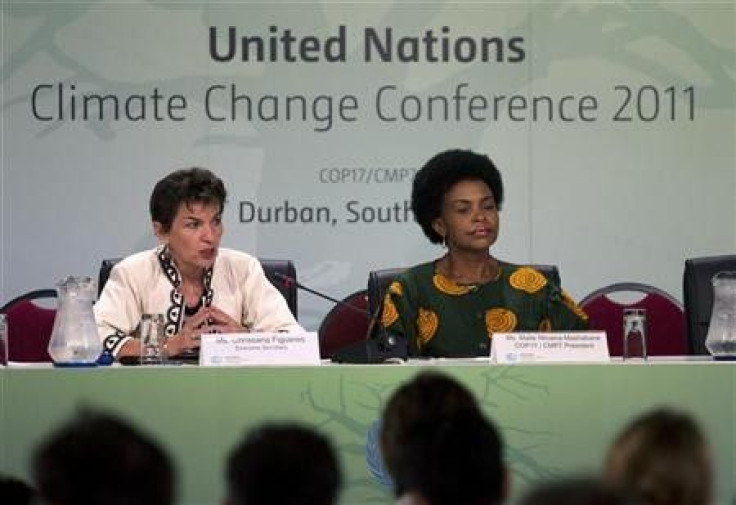EU says climate pact not enough, wants deal by 2015

The world needs a far more ambitious plan to cut emissions of planet-warming greenhouse gases than the Kyoto Protocol, European Union climate negotiators said on Monday, calling for a global deal to be reached by 2015 and in place by 2020.
Time is running out to save the Kyoto Protocol, which sets legally binding emissions cuts for most major economies and is designed to reduce the greenhouse gases blamed for global warming, increasingly extreme weather and crop failure.
Kyoto alone cannot save the planet ... countries are running away from the Kyoto Protocol, EU climate negotiator Artur Runge-Metzger told a news conference in Durban.
The EU is willing to sign up for a second commitment period of the Kyoto Protocol but other signatories, including Russia, Japan and Canada, are not. The EU said any deal would be almost meaningless unless the majority of emitters signed on.
The 1997 accord currently limits about a quarter of the world's carbon emissions, and that would fall to about 15 percent if only the EU and a handful of other countries signed up to a second round of targets after 2012.
The United States, the world's second biggest emitter after China, never ratified the protocol.
Major developing nations with surging economies, such as China and India, were not covered in the first commitment period as they were classified as emerging economies. Their emissions have greatly increased since then.
Climate change conferences in Copenhagen in 2009 and Cancun in 2010 ended without a plan for a new global deal and analysts have low expectations for progress in Durban.
The biggest obstacle is finding an agreement between the United States and China. The two have been at loggerheads for years with Washington saying it will not reach any deal that does not include Beijing and Beijing unwilling to make any commitment until Washington moves.
China's chief climate negotiator is not very optimistic about the result of talks in Durban, state radio reported on Monday, while U.S. climate envoy Jonathan Pershing warned China and other major emerging economies of U.S. resolve.
The structure of a legal agreement in which we are bound and those economies are not is untenable. It will not solve the problem. It will not be accepted in the United States, he said.
EU envoys asked for cooler heads to prevail or, Runge-Metzger said: People will lose confidence in this travelling circus.
© Copyright Thomson Reuters 2024. All rights reserved.











